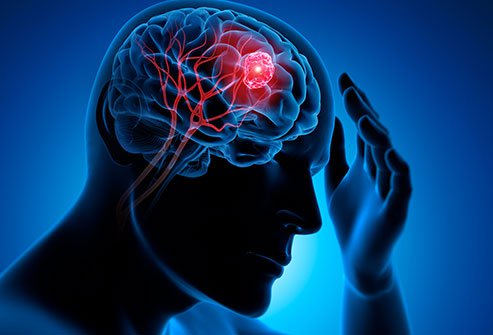
Headaches, sometimes felt only in the head or in several places, are a common symptom of brain tumors. Sometimes they are related to vomiting and nausea. "Headaches can be an alarming symptom if they are very severe and occur in an individual that has not had headaches before." – From the online article entitled "Stomach Cancer Symptom Symptoms" published on Mayo Clinic's website.
In addition to headaches, some of the other symptoms of a brain tumor can include feeling in a comfort zone, inability to concentrate, memory loss, numbness or tingling sensations in the arms and legs, and heart palpitations. Other symptoms may include trouble swallowing or breathing, trouble speaking, seizures, and vision changes. Some of these symptoms can be attributed to other health problems. In rare cases, cancer can cause these symptoms. Therefore, it is important for the doctor to rule out any other conditions that may have caused a brain tumor or other symptoms. But if there are other conditions, the doctor is more likely to suspect that a tumor is the cause.
If you suspect you have a brain tumor, you should go to the nearest hospital to confirm your suspicions. Don't diagnose yourself; See your doctor for diagnosis and treatment. Your symptoms are not always the same; in fact, there are many cases where the symptoms are indeed different. Brain tumors can cause unusual behaviors changes in sleep patterns, speech problems, and other physical changes. If your doctor suspects you may have a brain tumor, he or she will usually perform a computed tomography (computed tomography) or MRI (magnetic resonance imaging) scan.
The most common symptom of a brain tumor is headaches. If you experience more than one headache per day, and feel tired, confused, disorientated, numb or tingling in your arms and legs, trouble concentrating, or any difficulty breathing, you may have a swelling.

Sometimes a symptom of a brain tumor can also include pain, numbness, tingling, and a change in the way you think or feel
The problem with pain and other symptoms is that if the pain is persistent or persistent, it could indicate that a swelling is causing it. and can be diagnosed. If you experience pain and numbness in your arms and legs, and lose coordination and balance, swelling is the cause.
Because there are so many different symptoms, there is no one way to tell if you have a brain tumor without a scan. A CT or MRI scan is the best way to find out if you have a tumor or not. If there is a high level of pain or disorientation, the chances of having a tumor are very high. If you experience loss of consciousness or have trouble with movement and are having trouble breathing or speaking, you need to seek immediate attention.
Symptoms can also be confusing because some people experience pain in the head and shoulders but are not necessarily experiencing pain in the brain. The brain can affect how the body feels. For instance, if you are constantly aware of pain in your head but feel pain in the shoulders, it is difficult to diagnose a tumor, but not necessarily a tumor. If someone you love has suffered from a tumor and has never experienced pain in the head and shoulders, but is now experiencing pain in the chest or face, he or she might have a tumor.
If you experience pain in the head and shoulders, but are not experiencing pain in the brain, the most likely cause is still a tumor. There are several ways to test for a tumor and a doctor will discuss them with you. Your family doctor is probably the best person to ask for advice on a treatment plan.